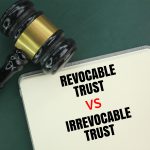Estate Planning
Transnational Inheritance Management between New Jersey and France

When a U.S. citizen inherits or owns property in France, navigating the succession process can be complex. Unlike the U.S., where testamentary freedom is broadly recognized, France follows a civil law system with strict inheritance rules, most notably, forced heirship (réserve héréditaire), which protects the rights of close family members. These rules guarantee a fixed […]
Read More....Inheriting Assets in Germany While Residing USA

Inheriting assets in Germany while residing in the United States, or vice versa, requires navigating legal systems that approach succession from fundamentally different frameworks. Germany applies a civil law system, codified and structured under statutes like the Bürgerliches Gesetzbuch (BGB), where the rules for intestate succession and wills are precisely defined. The U.S., by contrast, follows a […]
Read More....Management of Inheritance with Property in Italy and New Jersey

When a deceased person owns real estate or a business in Italy, the succession issue becomes more complex. The laws governing the administration of estates vary between countries, while still respecting private international law. The same applies in the case of a deceased person of Italian nationality who owns property in New Jersey: Italian law […]
Read More....Are Arbitration Clauses in Wills Enforceable in New Jersey? A Look at in re Hekemian

Estate litigation is costly and emotional, so it’s no surprise that some testators try to avoid it by including arbitration clauses in their wills. But in in re Hekemian, the Appellate Division held that, in New Jersey, those clauses likely don’t hold up, at least under current law. Samuel Hekemian’s will require that all disputes […]
Read More....Supplemental Needs Trusts in New Jersey

Supplemental needs trusts (SNT), also known as special needs trusts, are a legal arrangement that allows a disabled person to have assets held by a trustee, while still being eligible for government benefits like Medicaid and Supplemental Security Income (SSI). Many disabled individuals depend upon government benefits, such as Medicaid and Supplemental Security Income (SSI) […]
Read More....What the Jimmy Buffett Estate Fight Can Teach Families

Know what’s definitely not a cheeseburger in paradise? A drawn-out legal battle between family and trusted advisors. Yet that is exactly what’s happening in the wake of Jimmy Buffett’s passing and it’s a reminder of how even the best intentions can lead to family conflict without careful estate planning. Buffett, whose estate is worth an […]
Read More....Revocable Trusts vs. Irrevocable Trusts: What is the Difference?

Both revocable and irrevocable trusts are used in estate planning, but they serve different purposes and offer different advantages and disadvantages. A revocable trust allows the person who sets up the trust (the grantor) to change or revoke the trust at any time during their lifetime. At the time of your death, a revocable trust […]
Read More....What Is New Jersey Medicaid Planning?

New Jersey Medicaid planning is a legal and financial strategy designed to help individuals qualify for Medicaid benefits while preserving as many of their assets as possible. Medicaid is a federally funded program administered by each state (known as NJ FamilyCare in New Jersey) that provides health coverage to individuals with limited income and resources. […]
Read More....Understanding the Medicaid Look-Back Period in New Jersey

If you’ve started researching Medicaid planning, you’ve likely come across the term of the Medicaid look-back period in New Jersey. But what exactly does it mean, and why is it so important? What Is the Medicaid Look-Back Period in New Jersey? In New Jersey, the Medicaid look-back period is a five-year timeframe during which Medicaid […]
Read More....Revocable Living Trust: A Flexible and Practical Estate Planning Tool in New Jersey

When it comes to estate planning in New Jersey, a revocable living trust is a versatile option that can help you manage your assets during your lifetime, and simplify the process of passing them on after your death. Please note that a revocable living trust is not appropriate in every circumstance, and should only be […]
Read More....